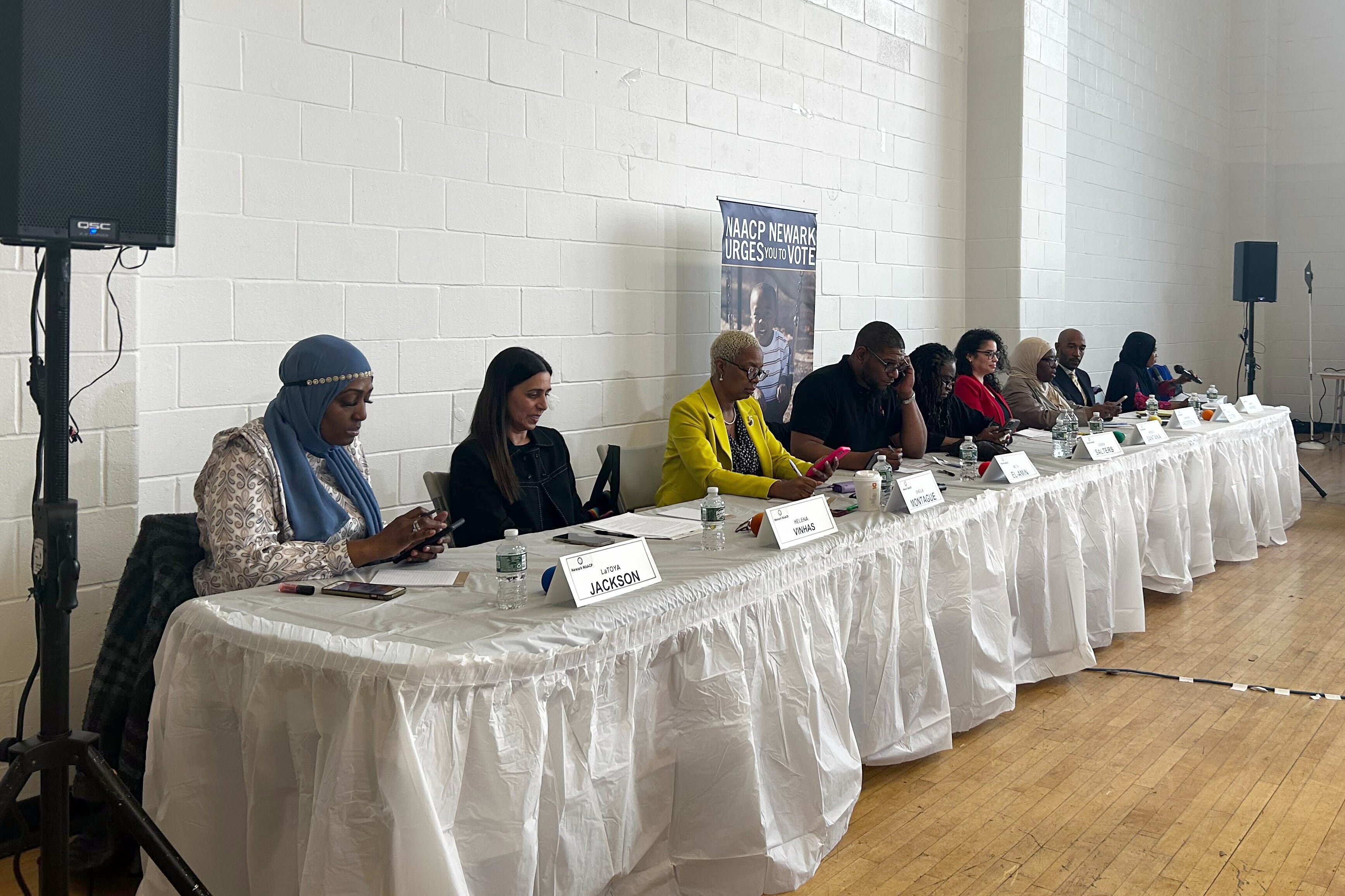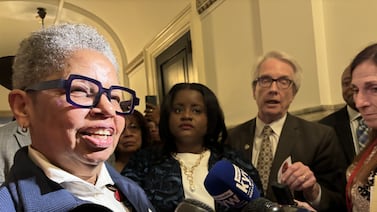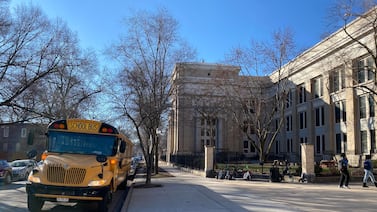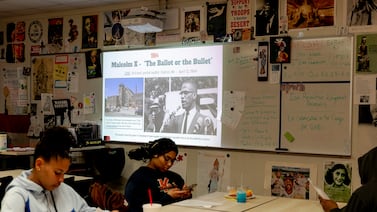Sign up for Chalkbeat Newark’s free newsletter to keep up with the city’s public school system.
Before this year’s presidential and New Jersey senatorial races, Newark residents will vote in the April school board election on Tuesday.
The city’s 160,000-plus registered voters will head to the polls and see a pool of nine candidates on their ballot vying for three full-term seats and one unopposed incumbent looking to reclaim her seat for a one-year, unexpired term.
Low reading and math test scores, aging facilities, chronic absenteeism, and calls to expand bilingual education services are among the top issues facing the district. In the upcoming year, the board will be tasked with addressing these concerns using its recently approved $1.5 billion budget as federal COVID relief funds are set to expire in September.
How do I vote in the April school board election?
Registered voters can vote in person at their polling place from 6 a.m. to 8 p.m. on April 16. There are 97 polling locations citywide and they are listed by ward in English and Spanish on the Essex County Board of Elections website.
If you’re a registered voter but don’t want to vote in person or can’t make it, you can vote by mail. Voters were able to apply by mail for a mail-in ballot up until April 9. For those who missed that deadline and still want this option, visit the Essex County Clerk’s Office to apply in person before the cutoff time of 3 p.m. on Monday, the day before the election. The county clerk’s office is located at 495 Dr Martin Luther King Jr Boulevard in Newark.
Be sure to follow the instructions on the ballot to deliver it before polls close on Tuesday to the county elections board, located in the same building as the county clerk. If mailing the ballot, it must be postmarked no later than April 16 and received by the elections board no later than six days after polls close.
The voter registration deadline for this election was March 26. Voters for this election must be at least 18 years old but starting next year, the minimum age to vote in the school board election will be 16 in Newark. To check on voter registration status, visit the state Division of Elections website.
Who’s running?
Nine candidates are running for three three-year terms, including Che’ Colter, Muta El-Amin, Dawn Haynes, Latoya Jackson, Sheila Montague, Debra Salters, Vereliz Santana, Helena Vinhas, and Jimmie White. Kanileah Anderson is running unopposed for a one-year unexpired term.
Anderson and Vinhas were appointed by the board in January to fill seats vacated by former board members.
To better understand each candidate’s views on key issues, Chalkbeat Newark sent all 10 candidates five questions, including two submitted by readers. Nine candidates responded.
Here’s what they said in their own words. Responses were lightly edited for clarity and length. Grammatical errors in candidate responses were not corrected.








